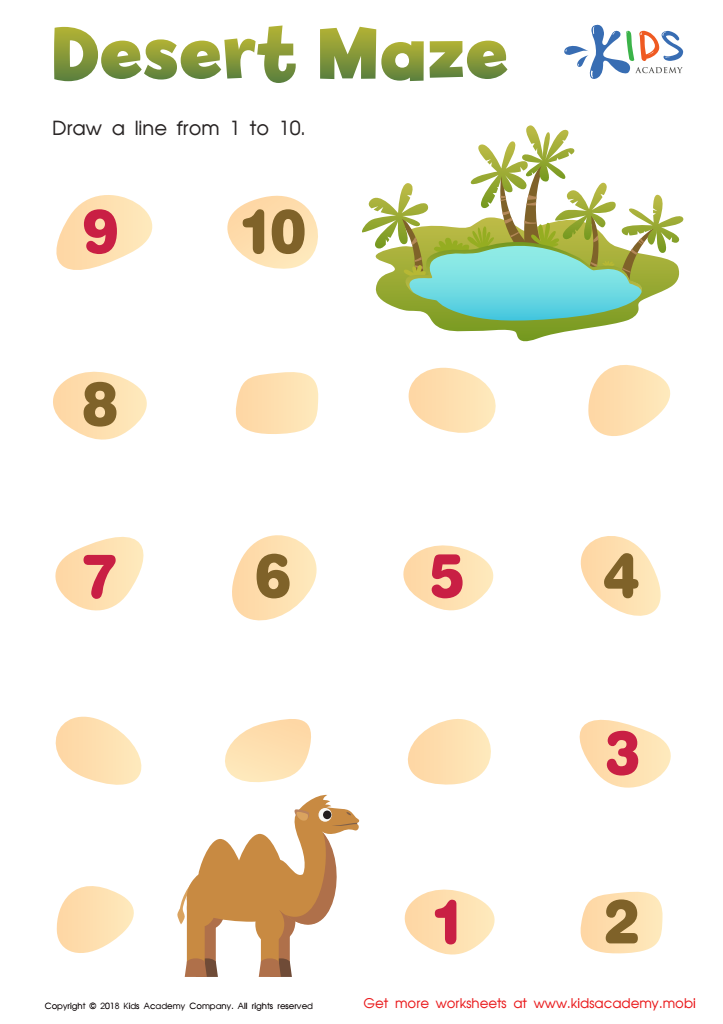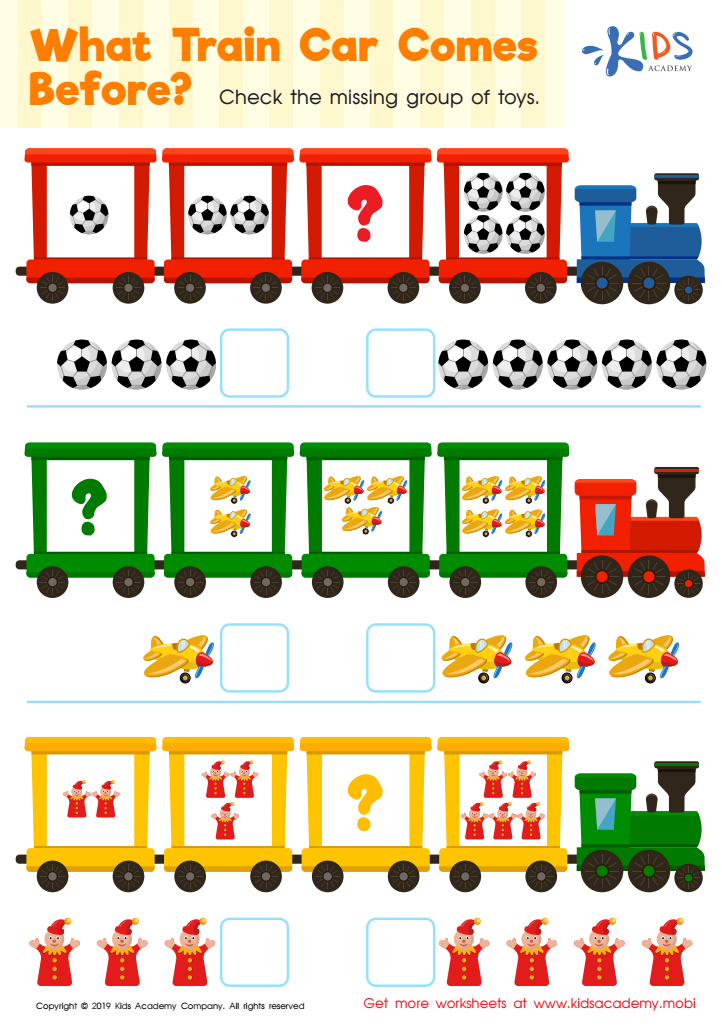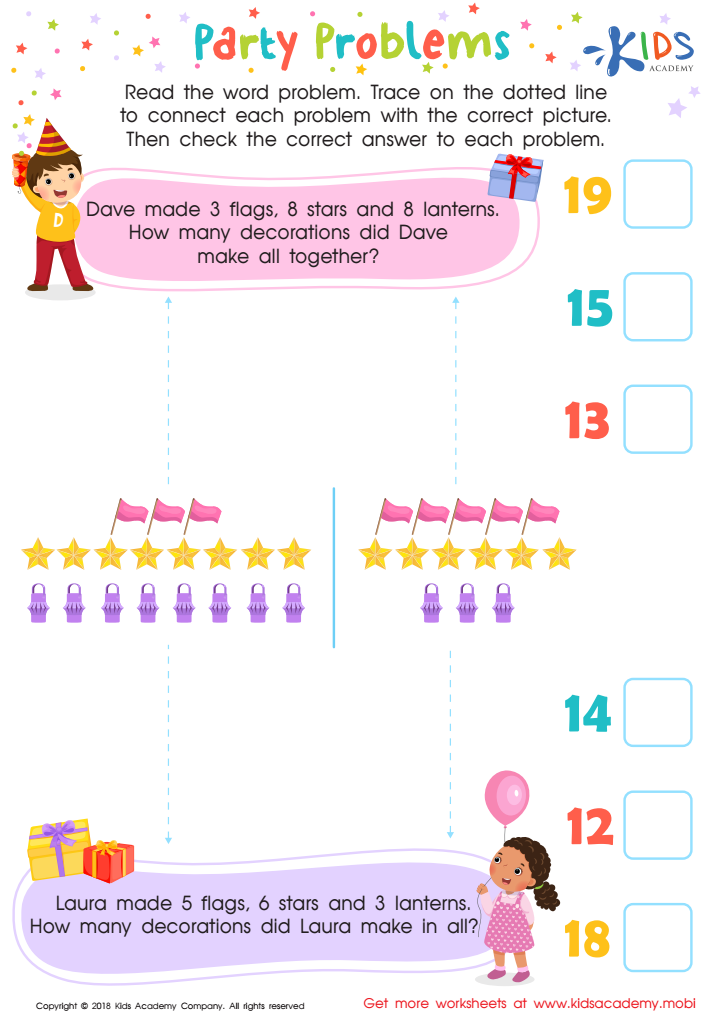Critical Thinking Numbers Worksheets for Ages 3-4
3 filtered results
-
From - To
Cultivate early math skills and problem-solving abilities with our Critical Thinking Numbers Worksheets for ages 3-4. At Kids Academy, our expertly crafted worksheets blend number recognition with engaging activities to foster critical thinking and logical reasoning. As children complete the fun tasks, they develop a strong numerical foundation while honing their analytical skills. Colorful, interactive, and designed specifically for young minds, these worksheets make learning enjoyable and effective. Perfect for preschool and kindergarten readiness, our resources support parents and educators in nurturing confident, independent thinkers from an early age. Boost your child's mathematical confidence—explore our worksheets today!


Desert Maze Worksheet


What Train Car Comes Before? Worksheet


Party Problems Worksheet
Parents and teachers should care about Critical Thinking Numbers for ages 3-4 because it lays the foundation for future cognitive and academic success. At this developmental stage, children are highly receptive to learning new concepts, and incorporating critical thinking into their understanding of numbers promotes deeper comprehension and problem-solving skills.
Introducing critical thinking with numbers encourages toddlers to go beyond memorization. They learn to analyze patterns, compare quantities, and understand basic mathematical principles. This early exposure helps foster logical reasoning and analytical skills, essential for success in school subjects like math and science.
Moreover, children who engage in critical thinking can better understand the 'why' behind numbers, not just the 'what.' For instance, rather than just counting to ten, they'll start grasping concepts like more or less, grouping, and sequencing. These skills support their overall cognitive development, impacting language, reading, and social skills.
Engaging children in activities that combine fun and critical thinking, such as sorting games, puzzles, and interactive counting, can significantly enhance their curiosity and motivation to learn. Therefore, instilling these skills early provides a strong educational foundation, making transitions to formal schooling smoother and equipping them with lifelong thinking tools. The investment in critical thinking numbers at this young age is essential for holistic development and long-term academic success.
 Assign to My Students
Assign to My Students

















